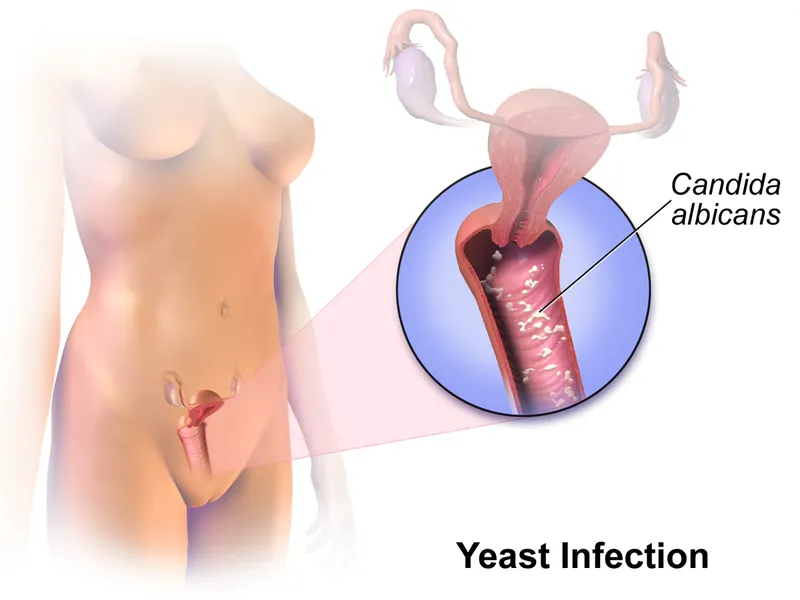In the whirlwind of life—careers, relationships, parenting, community involvement—it’s often easy for women to place their own health on the back burner. Yet, the truth is unavoidable: early detection is one of the most powerful tools we have in the fight against disease. Routine screenings don’t just save lives; they preserve quality of life. They’re a window into what’s happening beneath the surface—silent changes, subtle warnings, and sometimes, early threats that can be stopped in their tracks.
The importance of preventive care has never been clearer. With medical technology advancing rapidly, screenings today are smarter, more accurate, and less invasive than ever before. And they offer something invaluable: peace of mind. Whether it’s a simple blood test or an in-depth imaging scan, every test serves as a shield, catching potential health issues long before they become dangerous or irreversible.
The Power of Personalization in Preventive Medicine
Gone are the days of one-size-fits-all medicine. Today’s healthcare recognizes that each woman is a unique tapestry of genetics, lifestyle, history, and risk. A screening that’s vital for one woman at 25 may be entirely different from what another needs at 45 or 60. That’s why modern screenings are tailored to individual risk factors—family history, personal habits, reproductive choices, and even ethnicity.
This shift toward personalized preventive care is empowering women to take control of their health journeys. It’s not just about checking boxes; it’s about asking the right questions at the right time and having the right conversations with healthcare providers. Screenings are the cornerstone of that dialogue—a roadmap that evolves as a woman moves through each stage of life.
Breast Health: Vigilance Saves Lives
Perhaps no other screening has been more emphasized in women’s health conversations than mammograms. And for good reason. Breast cancer is one of the most common cancers among women, but early detection dramatically improves outcomes. The mammogram—a low-dose X-ray of the breast—is a simple procedure, but its impact is monumental. It can detect tumors before they can be felt, often years before symptoms appear.
But breast health screening doesn’t stop at mammograms. For women with dense breast tissue or a family history of breast cancer, additional imaging like breast ultrasounds or MRIs may be recommended. And self-awareness plays a crucial role, too. While regular screenings are essential, knowing your own body—recognizing changes in shape, texture, or sensation—can also prompt early diagnosis.
What’s often less discussed is how breast health screenings can be tailored. For instance, women with BRCA1 or BRCA2 genetic mutations may begin mammograms and MRIs as early as age 25. And for women undergoing hormone replacement therapy or with previous benign breast conditions, frequency and method of screening may shift.
Cervical Health: Quiet Protection Through Pap and HPV Testing
The cervix, a small yet mighty part of the female reproductive system, holds a big secret: most cervical cancers are preventable. Thanks to the Pap test and HPV screening, the death rate from cervical cancer has plummeted over the decades. The Pap test, developed in the 1940s, looks for abnormal cells on the cervix before they turn cancerous. The HPV test, newer but equally essential, identifies the presence of high-risk strains of the human papillomavirus—the virus responsible for nearly all cervical cancers.
What makes these screenings unique is their long window of effectiveness. When done regularly, Pap and HPV tests can catch changes years before cancer develops. And for women with consistently normal results, screening intervals may stretch to every three to five years—balancing vigilance with convenience.
It’s also a symbol of modern medicine’s elegance: a simple, few-minute test performed in a routine gynecological exam that carries profound implications. Women who receive the HPV vaccine in adolescence still need screening later in life, though they benefit from a lower risk profile. These tests not only save lives—they represent how far science has come in protecting future generations of women.
Reproductive Health: Fertility, Hormones, and Beyond
Reproductive health screening is often associated with pregnancy or contraception, but it’s a lifelong conversation that spans menstruation to menopause and beyond. Hormonal imbalances, fibroids, polycystic ovary syndrome (PCOS), and endometriosis can all wreak havoc on a woman’s body and life—but they’re often misunderstood or misdiagnosed.
Routine pelvic exams, transvaginal ultrasounds, and hormone panels are key tools in understanding reproductive health. These screenings aren’t about catching cancer—they’re about detecting disruption. They help diagnose irregular cycles, severe menstrual pain, unexplained weight gain, or infertility struggles. And they help tailor treatments, whether it’s birth control, lifestyle changes, or surgical interventions.
For women over 35 trying to conceive, fertility screenings may include ovarian reserve testing and partner evaluations. Later in life, screenings shift to monitoring perimenopause and menopause symptoms, checking estrogen levels, and evaluating risks tied to hormone replacement therapy.
Bone Density: Protecting the Silent Foundation
Bones don’t often make headlines in women’s health, but they should. Osteoporosis—a condition in which bones become brittle and fragile—disproportionately affects women, especially after menopause. Estrogen plays a protective role in bone health, and as levels drop during midlife, bone density can decline rapidly and silently.
A bone density scan, or DEXA scan, is the gold standard for measuring bone health. It’s quick, painless, and incredibly telling. Typically recommended for women over 65, it may be advised earlier for those with risk factors such as a history of fractures, early menopause, smoking, or a family history of osteoporosis.
This screening is vital because the first sign of osteoporosis is often a broken bone—and by then, the condition is already advanced. With early detection, lifestyle changes, supplements, or medications can slow or even reverse bone loss, preserving mobility and independence for decades to come.
Heart Health: Listening to the Beat Beneath the Surface
Cardiovascular disease is the leading cause of death for women worldwide—yet it’s still misunderstood and underdiagnosed. Part of the challenge is that women’s heart disease symptoms often differ from men’s, and their risk factors can be unique. That’s why comprehensive heart screenings are essential, even for those who feel perfectly healthy.
Blood pressure checks, cholesterol panels, glucose tests, and sometimes electrocardiograms (EKGs) are the pillars of heart health screening. These tests provide a snapshot of how well the heart and blood vessels are functioning and reveal early signs of hypertension, high cholesterol, or insulin resistance.
For women with a history of preeclampsia, gestational diabetes, or autoimmune diseases like lupus, the risks are even higher. These screenings are more than numbers—they’re a wake-up call. They empower women to make dietary, fitness, and stress-management choices that support lifelong cardiovascular wellness.
Diabetes and Metabolic Health: Unmasking a Silent Threat
Type 2 diabetes often creeps in quietly, its symptoms subtle or entirely absent until significant damage is done. Regular blood glucose testing and hemoglobin A1C tests are the first line of defense in catching this chronic condition early. These tests are especially important for women with high body mass index (BMI), sedentary lifestyles, or a family history of diabetes.
Gestational diabetes adds another layer of complexity. Women who develop it during pregnancy are at increased risk of developing Type 2 diabetes later. That makes postpartum screenings critical—yet they’re often overlooked in the hustle of caring for a newborn.
Metabolic screenings, which include tests for triglycerides, HDL and LDL cholesterol, and insulin resistance, round out the picture. They’re especially vital during perimenopause, when hormonal changes can spike blood sugar and cholesterol levels, increasing the risk of heart disease and diabetes simultaneously.
Colon Health: Shedding the Stigma and Saving Lives
Colorectal cancer is no longer a disease of old age—it’s increasingly affecting younger adults, including women in their 30s and 40s. The colonoscopy remains the most thorough screening, allowing doctors to spot and remove polyps before they become cancerous. For those uncomfortable with the invasiveness of a colonoscopy, stool-based tests offer less invasive options, though they’re not as comprehensive.
Screening typically begins at age 45, or earlier for those with a family history of colorectal cancer. Though many dread the prep and procedure, the peace of mind is well worth it. Colon cancer, when caught early, is one of the most treatable cancers, and screening can literally prevent it from developing in the first place.
This is also an area where stigma can be deadly. Embarrassment or fear should never be barriers to lifesaving care. Increasing awareness and normalizing these conversations are as crucial as the screenings themselves.
Skin, Thyroid, and Eye Health: The Overlooked Essentials
While not always part of standard checkups, screenings for skin cancer, thyroid disease, and eye health can catch issues with enormous long-term impact. Skin cancer, especially melanoma, is on the rise among women under 40. Regular skin exams by a dermatologist and monthly self-checks for new or changing moles are a woman’s best defense.
Thyroid disorders are also common in women, especially after childbirth or during midlife. Simple blood tests can detect hypothyroidism or hyperthyroidism, which can masquerade as fatigue, weight changes, anxiety, or menstrual irregularities.
Eye exams are about more than vision correction. They can detect early signs of glaucoma, macular degeneration, or even neurological conditions. Women with diabetes or high blood pressure are particularly at risk for retinal damage, making regular screenings vital for preserving sight.
Mental Health: Elevating the Invisible Priorities
Mental health screening is perhaps the most overdue addition to routine care, yet it’s arguably one of the most important. Anxiety, depression, postpartum mood disorders, and perimenopausal mood shifts all disproportionately affect women. And unlike physical illnesses, these often go unspoken and untreated.
Screening for mental health is increasingly common in primary care settings. Questionnaires, one-on-one conversations, and follow-up evaluations help identify women struggling in silence. Early intervention—whether through counseling, medication, or lifestyle changes—can be transformative.
Acknowledging the importance of mental health means recognizing that emotional well-being is foundational to overall health. It’s not secondary or optional—it’s essential. And making mental health screening a routine part of women’s healthcare is a vital step toward breaking stigma and fostering resilience.
Taking Ownership: Turning Awareness Into Action
Knowing which screenings matter is only half the battle. The next step is making them happen. That means scheduling appointments, asking informed questions, and not brushing off small concerns. It also means understanding insurance coverage, finding trustworthy providers, and carving out time for self-care in a world that constantly pulls women in every direction.
It helps to keep a personal health calendar—an evolving record of when tests were last done and when they’re due next. And just as importantly, it means listening to your body and honoring its signals, no matter how subtle. Fatigue, irregular periods, mood swings, or unexplained pain should never be dismissed as “just part of being a woman.”
Women are often the health managers of their families, yet too often, their own health is treated as an afterthought. That needs to change. Screenings are not indulgences—they are investments in the life you want to live, the milestones you want to reach, and the people you want to be present for.
A Lifetime of Health, One Screening at a Time
Every stage of a woman’s life brings new challenges and new questions—but also new tools, new knowledge, and new opportunities. From the teenage years to the post-menopausal decades, preventive care offers a lifeline, a path forward that’s rooted in awareness and self-respect.
Health screenings are more than clinical procedures. They are acts of courage. Acts of love. Acts of future-building. They say, “I’m worth protecting.” And they make it possible for women not just to survive—but to thrive.
So schedule the appointment. Ask the questions. Know the numbers. And let screening be your compass—guiding you, grounding you, and giving you the confidence to live every day as fully as possible.






